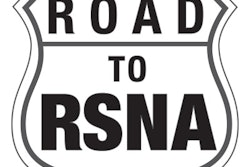Thursday, December 5 | 10:50 a.m.-11:00 a.m. | SSQ11-03 | Room N229
A group of researchers from Switzerland has developed a report comparison tool that enables residents to receive feedback on their reports from attending radiologists.Attending radiologists routinely review resident-dictated preliminary reports and perform editing tasks before signing off on them. However, these edits usually aren't performed in the presence of the resident and are generally not communicated back to the trainee due to time constraints or spatial separation, according to presenter Dr. Jan Vosshenrich of the University Hospital Basel.
"However, these final edits to preliminary reports by experienced staff radiologists represent valuable educational opportunities for residents to improve their reporting skills and avoid critical errors," Vosshenrich told AuntMinnie.com. "The importance of this 'lost' teaching moment seems to be underestimated, since still today reporting skills are typically only taught informally to residents, even though the radiology report is the main communication tool a radiologist uses to transfer information."
The researchers developed a report comparison tool that provides residents with a web-based platform to review edits to their preliminary reports. This enables the "feedback loop" to be closed between the staff radiologists and residents, Vosshenrich said.
"The continuous increase in acceptance and especially the eager use of the tool after on-call shifts since its introduction in late 2017 clearly demonstrates the need for such platforms to augment current methods of learning," he said. "Residents receive constructive feedback, visualized as a side-by-side comparison. They improve their reporting skills and reduce recurring errors through continuous review of edits."
The system's dashboard also provides residents with a macroscopic view of their progress.
"In addition to that, data may also be aggregated on a department level to reveal overall trends in reporting, to better understand learning patterns of residents, and to draw conclusions on how to maintain effective teaching," Vosshenrich said.




















